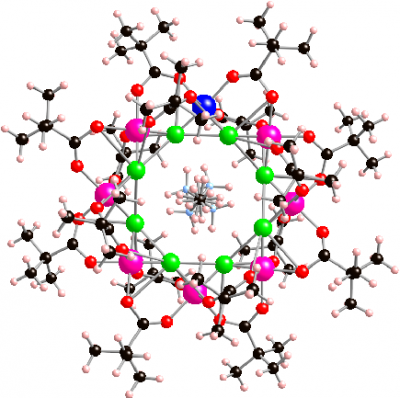Nanoscale magnets show new promise as quantum information processors

Together with collaborators at the Universities of Manchester and Princeton, we have moved a step closer to making a new kind of information processing device called a quantum computer by using tiny magnets, each one made out of a single molecule. In a quantum computer, the information-carrying elements are permitted to exist in strange quantum states, known as qubits. Our results show that the time for which the qubits can be stable can significantly exceed the time it takes to perform operations on them. This is the crucial prerequisite for the deployment of these systems in quantum information applications.
Will spin-relaxation times in molecular magnets permit quantum information processing?
Arzhang Ardavan, Olivier Rival, John J.L. Morton, Stephen J. Blundell, Alexei M. Tyryshkin, Grigore A. Timco, and Richard E.P. Winnpenny,
Physical Review Letters 98, 057201 (2007) Link
 Close
Close

